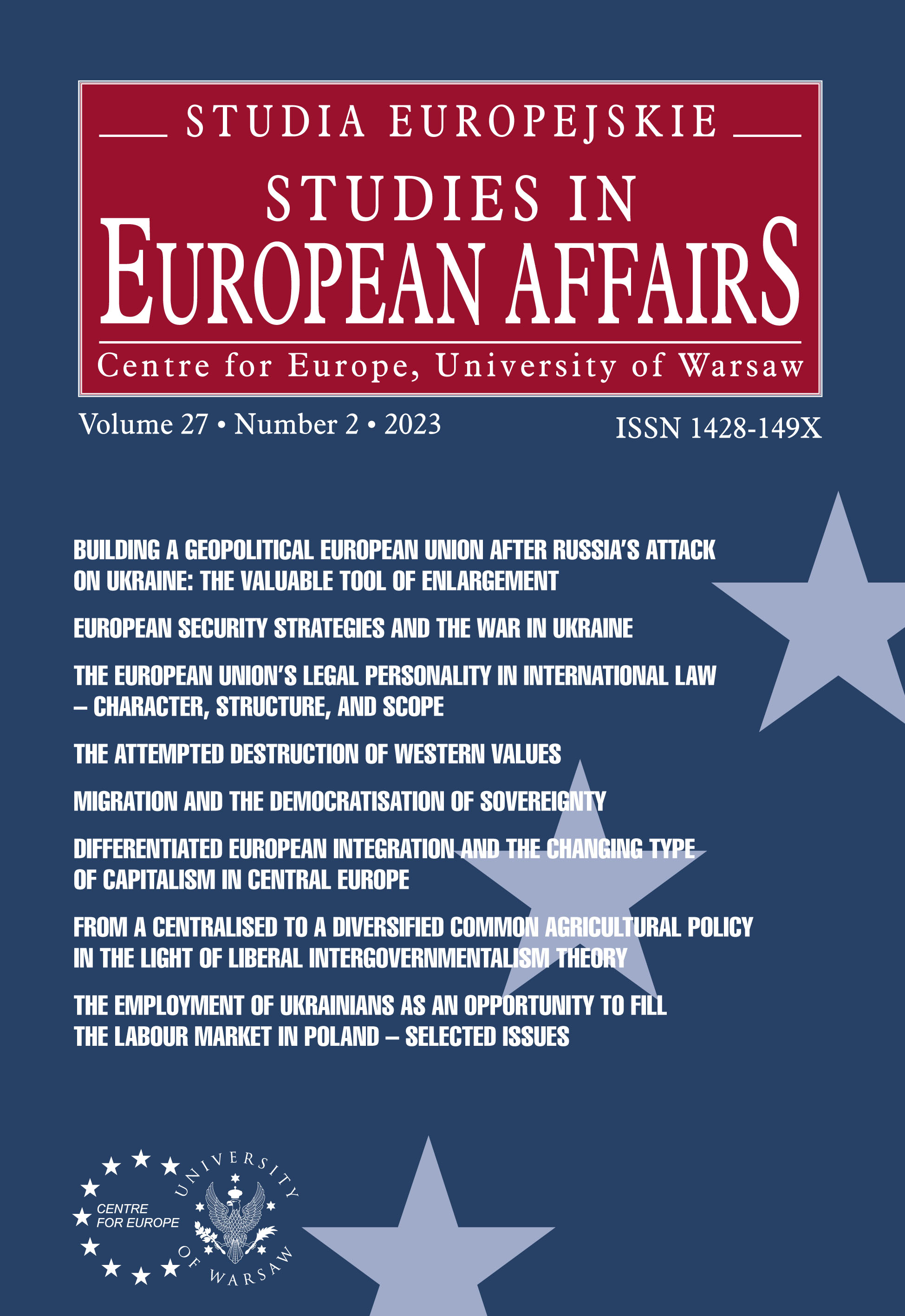From a Centralised to a Diversified Common Agricultural Policy in the Light of Liberal Intergovernmentalism Theory
From a Centralised to a Diversified Common Agricultural Policy in the Light of Liberal Intergovernmentalism Theory
Author(s): Renata GrochowskaSubject(s): Politics / Political Sciences, Politics, Social Sciences, Economy, National Economy, Agriculture, Sociology
Published by: Centrum Europejskie Uniwersytetu Warszawskiego
Keywords: Common Agricultural Policy; European Union; Differentiated Integration
Summary/Abstract: The aim of this study was to identify the circumstances in which the Common Agricultural Policy, once the most centralised policy in the EU, changed, after 2013, into one which is the most decentralised and diversified. The following hypothesis was put forward that the introduction of significant flexibility in the CAP reflects the search by Member States for the most effective ways to identify and implement their own preferences on the EU forum. The research was conducted from the perspective of the liberal intergovernmentalism theory based on a critical analysis of the respective literature and the applicable strategic documents and regulations. In the study, a large heterogeneity of agricultural sectors in the EU has been shown, resulting from several enlargements of the EU. Consequently, it has led to an increasing diversification of national preferences, signifi cantly affecting the shape of the CAP reforms proposed on the EU forum. Other important drivers influencing the changes in the CAP were the introduction of a co¬decision procedure in the area of agriculture, along with the increasing impact of Member States on the decision-making process since the economic crisis of 2008–2009. As a consequence, EU budget negotiations have been dominated by narrowly-defined sectoral and national interests. The concentration of Member States on an acceptable net position contributes to maintaining the status quo in terms of the expenditure part of the EU budget or its reduction. Thus, there is a risk that the deficit of European integration in areas assuming the distribution of costs and benefi ts between Member States may have a negative impact on the future of the EU.
Journal: Studia Europejskie
- Issue Year: 27/2023
- Issue No: 2
- Page Range: 121-134
- Page Count: 14
- Language: English

